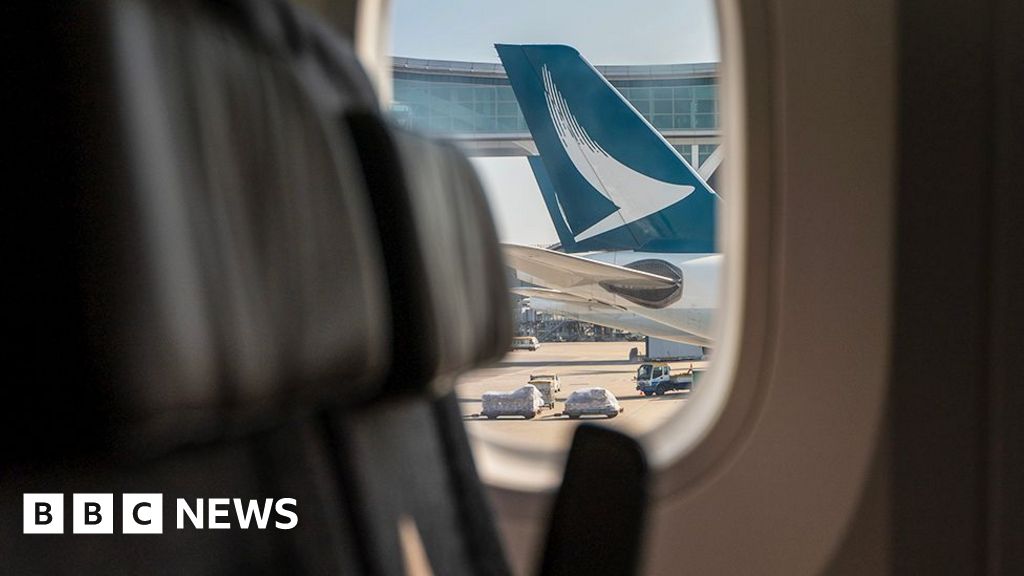News
Why Trossard was sent off but Doku and Szobozslai escaped sanction

There is no doubting it ruined one of the most pulsating Premier League games of stratospherically high quality in a long while, but many are directing their anger at the wrong protagonist for Leandro Trossard’s game-changing red card at Manchester City.
By the letter of the law, Trossard deserved to get his marching orders, but that is not what is angering many Arsenal fans on a drizzly Monday morning.
If Trossard was cautioned for kicking the ball away, why did Jeremy Doku not get booked for doing the same earlier in the match? And why did Dominik Szoboszlai’s attempts to drive the ball onto Stanley Park at Anfield last week against Nottingham Forest go unpunished? Consistency, huh?
Five games into the season, fans of a title chaser are calling for PGMOL chiel Howard Webb’s head and referee Michael Oliver, who was the man in the middle for Szoboszlai’s incident last weekend too, has a north London arrest warrant issued for charges of corruption.
i has been told the reasons, however, for the discrepancies. Look away now Gunners, you’re not going to like it.
One of the rule changes instilled at the start of the season focused on combating timewasting. Arsenal unfurled every trick in the book at the Eithad to do just that – conduct that John Stones called “dirty” and led Bernardo Silva to claim “only one team played football”.
But there is little referees can do about players going down injured when they are not or pulling up with cramp to break up play. One infringement that is within their control, however, is a clampdown on “kicking the ball away to prevent a free-kick being taken”.
The latter part of this directive is key and why Trossard’s yellow card was justified and Doku and Szoboszlai were not, or at least open to interpretation.
Premier League sources told i that it was “clear” Trossard booted the ball well away from where the City free-kick was being taken. Doku, however, was simply passing the ball back in the direction of where he thought the foul had taken place.
A closer look at the Szoboszlai incident, sources said, implies the letter of the law was applied here too. No Forest player is near the ball as Szoboszlai lashes it away in frustration, thus no free-kick being taken is prevented.
The context of the match has to be taken into account here, too. Liverpool were chasing the game against Forest, so Szoboszlai kicking the ball away hinders only his own team, not the opponent. Trossard had reason to kick the ball away, with Arsenal 2-1 up, even if it only crossed his mind for a split second.
One club has fallen foul to this new directive more than anyone else, which is why the vitriol has reached the levels it has in the aftermath of Arsenal’s draw in Manchester.
"It's not even a debate. You don't need to watch it 30 times! He's wrong" 😡
Roy Keane says Leandro Trossard's second yellow was the 'height of stupidity" 🫣 pic.twitter.com/kpgXx2KWTz
— Sky Sports Premier League (@SkySportsPL) September 22, 2024
Two dismissals for second yellow cards acquired after preventing an opponent from taking a free-kick has cost Arsenal four points this season, after Declan Rice’s red card against Brighton.
Four points is more than enough to keep an unrelenting City out in front once more and take Arsenal’s wait for a Premier League crown into a third decade.
But having been burned twice, Arsenal cannot fly so close to the sun again, whether they like the law or not.
Doku and Szoboszlai could have been booked, but there are valid reasons why they were not, abiding by rules etched in ink at the start of the season.
It may hurt, but Trossard can have no arguments. Webb and Oliver are not the villains here. The culprit is lurking among their own.
Travel
Anantara Ubud Bali Resort Brings a Jungle Wellness Sanctuary to Bali’s Interior

Courtesy of Anantara Ubud Bali
A graceful tropical retreat neighboring the traditional hillside village of Banjar Puhu in Payangan north of Ubud, the new Anantara Ubud Bali Resort will become the second property from Anantara Hotels, Resorts & Spas on the Indonesian island when it opens on October 1, 2024.
A collection of 85 modern suites and pool villas plus 15 private residences cascade down a densely forested hill towards a mountain stream. The tranquil resort is situated just minutes away from the vibrant cultural life of unhurried Ubud yet feels blissfully remote thanks to the untouched jungle that cocoons it.
Arriving at Anantara Ubud — a scenic 2.5-hour drive from Bali’s international airport — guests are greeted with panoramic views of the misty jungle and Mount Agung while the soothing frangipani-perfumed breeze and gong-like sounds of Balinese Gamelatron (a site-specific sculpture by artist Aaron Taylor Kuffner based on traditional gamelan) set the stage for tropical tranquility.

Courtesy of Anantara Ubud Bali
Elevated stays in a jungle canopy
Influenced by Hindu traditions and juxtaposed with Javanese elements, contemporary 570-square-foot suites promote relaxation with jungle views and richly crafted interiors. Decorated in calming neutral tones with subtle Balinese details, the ground-level suites place guests in the thick of the jungle. On the upper floor, the suites feature oversized bathtubs with dramatic views over the treetops and soothing sounds of the babbling stream down below.
One- and two-bedroom villas are calming oases inspired by the culture and traditions of the locale. At 1,130 square feet, the one-bedroom villas come with a spacious living area, an outdoor terrace, and a private infinity-edge pool. Two-bedroom villas offer 1,722 square feet of indoor-outdoor space with furnishings crafted from natural materials, neutral color palettes, and subtle Balinese influences that infuse the space with a timeless elegance. Dramatic 33- to 44-foot private pools are positioned on each villa’s terrace.

Courtesy of Anantara Ubud Bali
Residential living in Bali’s heartland
Guests who would like to own their own slice of paradise can choose from 15 Anantara residences that offer sophisticated interiors, masterful Balinese craftsmanship and luxurious amenities. Standing on stilts over a misty valley, Anantara Ubud’s one-bedroom residential villas maximize privacy and views. An elegant living and dining area features floor-to-ceiling windows, a fully-equipped Western kitchen and en-suite bedroom that opens out to a private infinity pool. Ensconced in nature, elegantly furnished two-bedroom residential pool villas are bathed in natural light. Two en-suite bedrooms and a spacious living and dining space flow directly out to a private infinity swimming pool, with tall windows opening out to unobstructed forest views. Ownership comes with full access to facilities at Anantara Ubud Bali Resort.
Sophisticated dining choices
Culinary options at Anantara Ubud Bali include specialty restaurants serving sustainable Balinese and international cuisines, with locally sourced organic produce being the daily highlight. Helmed by Executive Chef James Willis, whose background in fine-dining includes running the kitchens at heritage and Michelin-starred establishments, America is a contemporary open wood-fired restaurant will multiple jungle views. At Kirana, guests will find authentic Indonesian and international flavors, a lavish interactive breakfast buffet, and panoramic rainforest views.
The Sulang alfresco bar, located next to the adult-only swimming pool, serves cocktails and bar bites. For relaxing indoor–outdoor experiences, The Lobby Lounge serves morning coffee with a special local blend and afternoon tea. For special occasions, Anantara’s signature Designer Dining by Anantara experience invites guests to create a bespoke breakfast, picnic lunch or dinner with a private chef served by a waterfall, or in a rice paddy, a private pavilion or other setting to match the occasion.

Courtesy of Anantara Ubud Bali
Meaningful discoveries and island adventures
At Anantara Ubud Bali, guests will find numerous ways to decompress and unwind: from two swimming pools, adult-only and family, to a jungle-clad yoga deck and a fully equipped gym by TechnoGym. The youngest travelers will have their own space at the Kids’ Club. Nestled in its own building, Anantara Spa offers indigenous treatments and healing therapies alongside muscle-melting massages, hair styling at the salon, and multi-day wellness experiences from visiting practitioners specializing in everything from volcanic stone therapy to holistic Balinese treatments.
Business
Is the Budget’s bite going to be rather less painful than its bark?

The chancellor’s speech at the Labour Party conference was an important and clear change in tone from the government on the economy.
Just three weeks ago the PM warned of a “painful Budget”.
But in Liverpool, Rachel Reeves said: “My optimism for Britain burns brighter than ever, my ambition knows no limit.”
The fragile British consumer might not quite be ready, after years of rolling inflationary crises, for tough decisions on tax and spending.
Consumer confidence was hit, at least this month, and some retailers spooked by disappointing sales after this talk of pain.
The chancellor was sending a message that the tax rises, when they come, will not primarily hit hard-pressed working families.
She embraced the “choice” she made to give above-inflation pay rises to millions of public sector workers, saying she was willing to have a fight over it with the Conservatives.
Public spending will grow in real terms, or as she put it clearly in her speech there will be “no return to austerity”.
The chancellor gave more detail about how she will prioritise investment spending, especially in infrastructure.
The plans she has inherited are for a cut in the share of the economy devoted to public investment.
“Growth is the challenge… and investment is the solution,” she said.
We are heading towards some changes to the rules on government borrowing in order to allow more investment.
This should work with the newly announced Industrial Strategy, to be released with the Budget on 30 October. It might also help with levering in significant foreign investment at a crucial summit next month.
It was a coincidence, but the chancellor’s speech came on the two-year anniversary of Liz Truss’s mini-Budget. If anyone forgot the auspicious date, the former PM popped up with a specially crafted video to say that the Kwarteng/Truss fiscal plans should have been implemented in full.
This was fortuitous for the chancellor, as her speech defined herself as a type of anti-Truss.
The Truss legacy played an important part in delivering Reeves to her position, with a commanding Commons majority. Both shared an ambition to increase British growth. The tough decisions Reeves says she needs to make at the Budget are the contrast to the Truss episode.
But could it be that the Budget’s bite, will now prove to be significantly less painful than its bark?
News
Mark Allen Group buys airport and travel retail publisher Sixth Continent Holdings


B2B publisher Mark Allen Group has acquired travel and aviation-focused Sixth Continent Holdings, including flagship title The Moodie Davitt Report, for an undisclosed sum.
As well as its publications, Sixth Continent Holdings runs three major industry events, including conferences and awards for the airport food and hospitality sector.
The Moodie Davitt Report was founded in 2002 and “covers all aspects of the global industry eco-system from travel retail to dining, advertising to foreign exchange, plus other airport commercial revenue streams” according to a Mark Allen Group release.
Sixth Continent’s original co-owners – founder and chairman Martin Moodie and president Dermott Davitt – will remain at the business alongside “their experienced senior management and high-quality teams across editorial, sales, events and administration”.
Mark Allen Group chief executive Ben Allen said: “We have in Martin and Dermot two superstars who care passionately about the business and who will stay with us to develop it even further.”
Mark Allen Group already publishes Ground Handling International and Aircraft Interiors International and says it “will be seeking synergies across the titles”. Sixth Continent is to be integrated into the business group in a new division named MA Travel Retail.
Content from our partners
Mark Allen, the group’s executive chairman, said: “It is exceptionally rare to find such a brilliant business as this. Over recent years, the company has enjoyed exceptional growth.
“Extraordinarily, it even made a very good profit in 2020, the height of the pandemic, when other similar publishing and events businesses were floundering.”
Moodie said: “I have poured my heart and soul into this business over the past 22 years and I am thrilled that this agreement with another family company will both protect and grow that legacy. Together we will take the business to exciting new heights.”
Davitt added that with the Mark Allen Group’s support, “we aim to stretch our market leadership through our unrivalled industry relationships, our innovation drive and a relentless focus on delivering the highest-quality business intelligence and events to our loyal audience”.
In its most recent accounts, for the year to 31 March 2023, Mark Allen Group recorded profit before tax of £8.7m, down 7% year-on-year. Revenue increased 10%, partly driven by acquisitions that included net zero and energy management expo EMEX and Bonhill Group brands including Portfolio Adviser, Expert Investor and Fund Selector Asia.
Email pged@pressgazette.co.uk to point out mistakes, provide story tips or send in a letter for publication on our “Letters Page” blog
Money
How to give cyber security the priority treatment it deserves

 In an increasingly digital world, cyber security should be at the top of an advice firm’s priority list.
In an increasingly digital world, cyber security should be at the top of an advice firm’s priority list.
But the pace of change in technology can often leave people not quite understanding what they need to do to protect their business from cyber attacks or vowing to ‘get around to it’ at some point.
However, as former Conservative MP Stephen McPartland, author of the McPartland Review into Cyber Security, says, a lot of cyber attacks are speculative.
He likens firms that have little or no cyber security to leaving the front door of your house open – both are invitations for opportunist thieves to strike.
So, what can advisers do to protect themselves as they increasingly digitise their businesses?
Protecting your firm
While it is great for people running a business to have a positive, confident outlook, they do need to be realistic about business risks, and cyber crime is one of them.
Statistics from market analyst Truelist show up to 94% of companies that experience a severe data loss never recover because it can take a long time to identify and contain a data breach.
According to Truelist, 51% of firms close within two years of the incident and 43% never reopen. The picture is even worse for small firms, as 70% close within a year of a big data loss.
FTRC founder Ian McKenna adds that, if an advice firm experiences a data breach, the FCA expects them to put in place and pay for cyber security protection for every customer.
According to McKenna, there is “significant evidence” cyber criminals are targeting small advice firms because the information they hold about their clients is so comprehensive and, therefore, valuable.
“So much information comes from a client fact find. Advisers will have details of their clients’ kids and the cars they drive. There is so much data to help criminals working on the dark web,” he says.
“Cyber criminals have also identified that smaller advice firms tend to be relatively vulnerable.”
McKenna points to a lot of cases being identified in the US. Is it inconceivable to believe the same is happening in the UK?
Increasing use of AI is only going to increase the need for advice firms – and not just the bigger ones – to ensure they have adequate cyber protection in place.
“You can’t have an AI strategy without cyber security – they go hand in hand,” says McPartland.
“If you are increasingly using AI and putting more business in a digital world, you need to ensure you can secure that.”
A lack of understanding about what to do to become more resilient can often be a barrier. This is where talking to an expert or getting some training can help.
For example, the Chartered Institute for Securities and Investment (CISI) runs a short online course that covers things such as the nature of cyber risk, the types of attacks to be aware of and details of the regulatory and legal requirements.
The CISI Corporate Cyber Security Professional Assessment is written and reviewed by industry experts and is suitable for anyone who works in financial services, including advice firms.
“The risks of cyber attacks occurring apply to both large and small firms, so understanding these threats and protecting your organisation from them is essential for all financial services practitioners,” says CISI executive director of global learning Mandy Gill.
“Human error is often a cause, so being able to identify and distinguish between the different threats – including malware, phishing, whaling, spyware, ransomware, trojan viruses and business email compromise – can be an effective way to manage and reduce this risk.”
The recommended study time for the course is six hours, followed by a 60-minute multiple choice test consisting of 30 questions.
The CISI also offers a range of other online CPD content in the area of cyber security, including Professional Refresher modules on topics such as cyber crime, operational resilience, financial risk and fraud risk management.
Cyber insurance is another way firms can protect themselves but, as McPartland says, they need a cyber security strategy to underpin this.
“If you go to an insurer and tell them you park your car with the keys in the ignition and no alarm, they are unlikely to insure it,” he says.
“The difference here is that you are talking about possessions in the digital world.”
That said, cyber insurance does not currently appear to be very popular among advice firms.
“Only 4% of advisers have cyber insurance,” says McKenna. “It’s crucial to have it. Ideally you want the insurer to be the same as the provider of your PI, as you don’t want a situation where they are both saying the other should pay out.”
McPartland has some sympathy for smaller advice firms.
“A lot of the problem is that the insurance market is not mature enough yet, so there aren’t enough products for SMEs,” he says.
Recovery
Having a recovery process in place is key to fighting back against things like ransomware, where criminals steal data and demand money to return it.
“If you have a process in please, you don’t need to get that data back. It’s backed up and you’re doing other things to be resilient,” says McPartland. “You can either fight it off or you recover quickly to be up and running in a couple of days, so ransomware is not the threat to you they think it is.”
McPartland says advice firms need to think about three elements together – their cyber security, their resilience to cyber attacks and the recovery process. Focusing on just one element is not enough. They all need to be in place and reviewed regularly.
“It’s important to protect your data because a lot of decisions are based on it. If someone interferes with that data, they interfere with your ability to make decisions.”
News
Cathay Pacific bans couple who complained over reclining seat

Cathay Pacific has banned a Hong Kong couple from its flights after their row with a mainland Chinese traveller over her reclining seat.
The Chinese woman had complained on social media that she was harassed by the couple seated behind her on a Cathay flight after reclining her seat.
The Hong Kong flag carrier said on Sunday that it had added the couple to its no-fly list, saying it has “a strict zero-tolerance policy” towards behaviours that disrespect fellow passengers.
The Chinese woman’s post on social media platform Xiaohongshu, which captured part of the confrontation, had garnered 194,000 likes as of Monday morning and drawn mixed reactions online.
The incident took place on a flight from Hong Kong to London on 17 September.
In her post, the Chinese woman recalled how the middle-aged couple – a husband and wife – had accused her of obstructing their view of the in-flight television and asked her to straighten her seat.
When she refused, the wife stretched her legs and put them on the armrests of her seat, then started scolding her in Cantonese and slapping her arm, the woman said.
“When she realised I couldn’t speak Cantonese, she started calling me ‘mainland girl’ in a derogatory tone,” she said.
The husband, who was seated directly behind her, “frantically pushed” the back of her seat, the woman said. Her video showed the seat vibrating.
Another scene showed the wife raising her middle finger at the woman.
The woman then sought help from a flight attendant, who suggested that she straighten her seat.
“I was shocked because it was not meal time, yet the flight attendant wanted me to compromise,” the woman said. “I rejected the suggestion.”
Several passengers who witnessed the incident criticised the Hong Kong couple’s behaviour.
“Don’t call yourself a Hong Konger, you bully,” one passenger said.
Another said, “This is too much. How old are you? Why are you bullying a young girl?”
The woman’s post on Xiaohongshu sparked similar outrage.
“If they want more space, they should have paid for first-class seats,” one person wrote.
Several commenters were quick to defend Hong Kong’s reputation, with one saying “Most people in Hong Kong are kind, this couple is an exception.”
It has also triggered a debate on whether reclining one’s aeroplane seat is an acceptable practice.
Several users said that it should be acceptable, given that the ability to recline is a built-in function of the seats.
Others said it can get uncomfortable when passengers in front recline their seats too far back.
Business
What would Trump do on trade? With Alan Beattie
This campaign, candidate Donald Trump is promising even more extreme versions of the policies that marked his first term. But what would higher, and more widespread, tariffs actually look like? And in what form would any retaliation come? Today on the show, Soumaya and the FT’s senior trade writer Alan Beattie discuss the candidate’s campaign promises on trade, and where they might lead.
Soumaya Keynes writes a column each week for the Financial Times. You can find it here
Subscribe to Soumaya’s show on Apple, Spotify, Pocket Casts or wherever you listen.
-

 News5 days ago
News5 days agoYou’re a Hypocrite, And So Am I
-

 Sport4 days ago
Sport4 days agoJoshua vs Dubois: Chris Eubank Jr says ‘AJ’ could beat Tyson Fury and any other heavyweight in the world
-

 Science & Environment5 days ago
Science & Environment5 days agoHow to unsnarl a tangle of threads, according to physics
-

 Science & Environment4 days ago
Science & Environment4 days ago‘Running of the bulls’ festival crowds move like charged particles
-

 Technology5 days ago
Technology5 days agoWould-be reality TV contestants ‘not looking real’
-

 News1 day ago
News1 day agoOur millionaire neighbour blocks us from using public footpath & screams at us in street.. it’s like living in a WARZONE – WordupNews
-

 CryptoCurrency4 days ago
CryptoCurrency4 days agoEthereum is a 'contrarian bet' into 2025, says Bitwise exec
-

 CryptoCurrency4 days ago
CryptoCurrency4 days agoDZ Bank partners with Boerse Stuttgart for crypto trading
-

 Science & Environment5 days ago
Science & Environment5 days agoWhy this is a golden age for life to thrive across the universe
-

 Science & Environment4 days ago
Science & Environment4 days agoQuantum ‘supersolid’ matter stirred using magnets
-

 Science & Environment4 days ago
Science & Environment4 days agoSunlight-trapping device can generate temperatures over 1000°C
-

 Science & Environment5 days ago
Science & Environment5 days agoLiquid crystals could improve quantum communication devices
-

 CryptoCurrency4 days ago
CryptoCurrency4 days agoBitcoin miners steamrolled after electricity thefts, exchange ‘closure’ scam: Asia Express
-

 CryptoCurrency4 days ago
CryptoCurrency4 days agoDorsey’s ‘marketplace of algorithms’ could fix social media… so why hasn’t it?
-

 CryptoCurrency4 days ago
CryptoCurrency4 days agoLow users, sex predators kill Korean metaverses, 3AC sues Terra: Asia Express
-

 CryptoCurrency4 days ago
CryptoCurrency4 days agoBitcoin bulls target $64K BTC price hurdle as US stocks eye new record
-
Travel20 hours ago
Where Retro Glamour Meets Modern Chic in Athens, Greece
-

 News4 days ago
News4 days agoIsrael strikes Lebanese targets as Hizbollah chief warns of ‘red lines’ crossed
-

 Science & Environment4 days ago
Science & Environment4 days agoHyperelastic gel is one of the stretchiest materials known to science
-

 Science & Environment5 days ago
Science & Environment5 days agoMaxwell’s demon charges quantum batteries inside of a quantum computer
-

 Science & Environment4 days ago
Science & Environment4 days agoQuantum forces used to automatically assemble tiny device
-

 Health & fitness5 days ago
Health & fitness5 days agoThe secret to a six pack – and how to keep your washboard abs in 2022
-

 Science & Environment5 days ago
Science & Environment5 days agoHow to wrap your mind around the real multiverse
-

 Science & Environment4 days ago
Science & Environment4 days agoPhysicists are grappling with their own reproducibility crisis
-

 Science & Environment4 days ago
Science & Environment4 days agoNuclear fusion experiment overcomes two key operating hurdles
-

 CryptoCurrency4 days ago
CryptoCurrency4 days agoCardano founder to meet Argentina president Javier Milei
-

 CryptoCurrency4 days ago
CryptoCurrency4 days agoRedStone integrates first oracle price feeds on TON blockchain
-

 CryptoCurrency4 days ago
CryptoCurrency4 days agoSEC asks court for four months to produce documents for Coinbase
-

 CryptoCurrency4 days ago
CryptoCurrency4 days agoVitalik tells Ethereum L2s ‘Stage 1 or GTFO’ — Who makes the cut?
-

 CryptoCurrency4 days ago
CryptoCurrency4 days agoBlockdaemon mulls 2026 IPO: Report
-

 Science & Environment22 hours ago
Science & Environment22 hours agoMeet the world's first female male model | 7.30
-

 Sport4 days ago
Sport4 days agoUFC Edmonton fight card revealed, including Brandon Moreno vs. Amir Albazi headliner
-

 Technology4 days ago
Technology4 days agoiPhone 15 Pro Max Camera Review: Depth and Reach
-

 Science & Environment4 days ago
Science & Environment4 days agoHow one theory ties together everything we know about the universe
-

 News4 days ago
News4 days agoBrian Tyree Henry on voicing young Megatron, his love for villain roles
-

 Science & Environment5 days ago
Science & Environment5 days agoITER: Is the world’s biggest fusion experiment dead after new delay to 2035?
-

 CryptoCurrency4 days ago
CryptoCurrency4 days ago$12.1M fraud suspect with ‘new face’ arrested, crypto scam boiler rooms busted: Asia Express
-

 CryptoCurrency4 days ago
CryptoCurrency4 days agoCertiK Ventures discloses $45M investment plan to boost Web3
-

 CryptoCurrency4 days ago
CryptoCurrency4 days agoVonMises bought 60 CryptoPunks in a month before the price spiked: NFT Collector
-

 CryptoCurrency4 days ago
CryptoCurrency4 days ago‘Silly’ to shade Ethereum, the ‘Microsoft of blockchains’ — Bitwise exec
-

 CryptoCurrency4 days ago
CryptoCurrency4 days ago‘No matter how bad it gets, there’s a lot going on with NFTs’: 24 Hours of Art, NFT Creator
-
Business4 days ago
How Labour donor’s largesse tarnished government’s squeaky clean image
-

 CryptoCurrency4 days ago
CryptoCurrency4 days agoCoinbase’s cbBTC surges to third-largest wrapped BTC token in just one week
-

 News4 days ago
News4 days agoChurch same-sex split affecting bishop appointments
-

 Politics6 days ago
Politics6 days agoTrump says he will meet with Indian Prime Minister Narendra Modi next week
-

 Politics4 days ago
Politics4 days agoLabour MP urges UK government to nationalise Grangemouth refinery
-

 Science & Environment5 days ago
Science & Environment5 days agoTime travel sci-fi novel is a rip-roaringly good thought experiment
-

 Science & Environment5 days ago
Science & Environment5 days agoLaser helps turn an electron into a coil of mass and charge
-

 CryptoCurrency4 days ago
CryptoCurrency4 days ago2 auditors miss $27M Penpie flaw, Pythia’s ‘claim rewards’ bug: Crypto-Sec
-

 CryptoCurrency4 days ago
CryptoCurrency4 days agoHelp! My parents are addicted to Pi Network crypto tapper
-

 CryptoCurrency4 days ago
CryptoCurrency4 days agoCrypto scammers orchestrate massive hack on X but barely made $8K
-

 Science & Environment4 days ago
Science & Environment4 days agoWhy we need to invoke philosophy to judge bizarre concepts in science
-

 CryptoCurrency4 days ago
CryptoCurrency4 days agoSEC sues ‘fake’ crypto exchanges in first action on pig butchering scams
-

 CryptoCurrency4 days ago
CryptoCurrency4 days agoElon Musk is worth 100K followers: Yat Siu, X Hall of Flame
-

 CryptoCurrency4 days ago
CryptoCurrency4 days agoBitcoin price hits $62.6K as Fed 'crisis' move sparks US stocks warning
-

 CryptoCurrency4 days ago
CryptoCurrency4 days agoCZ and Binance face new lawsuit, RFK Jr suspends campaign, and more: Hodler’s Digest Aug. 18 – 24
-

 CryptoCurrency4 days ago
CryptoCurrency4 days agoTelegram bot Banana Gun’s users drained of over $1.9M
-

 CryptoCurrency4 days ago
CryptoCurrency4 days agoEthereum falls to new 42-month low vs. Bitcoin — Bottom or more pain ahead?
-

 CryptoCurrency4 days ago
CryptoCurrency4 days agoETH falls 6% amid Trump assassination attempt, looming rate cuts, ‘FUD’ wave
-
Politics4 days ago
‘Appalling’ rows over Sue Gray must stop, senior ministers say | Sue Gray
-

 CryptoCurrency4 days ago
CryptoCurrency4 days agoBitcoin options markets reduce risk hedges — Are new range highs in sight?
-

 News4 days ago
News4 days agoPolice chief says Daniel Greenwood 'used rank to pursue junior officer'
-

 Business6 days ago
Business6 days agoGuardian in talks to sell world’s oldest Sunday paper
-

 Technology5 days ago
Technology5 days agoCan technology fix the ‘broken’ concert ticketing system?
-

 News6 days ago
News6 days agoDid the Pandemic Break Our Brains?
-

 Politics6 days ago
Politics6 days agoTrump Media breached ARC Global share agreement, judge rules
-

 Science & Environment4 days ago
Science & Environment4 days agoA new kind of experiment at the Large Hadron Collider could unravel quantum reality
-

 Fashion Models4 days ago
Fashion Models4 days agoMixte
-

 Science & Environment4 days ago
Science & Environment4 days agoHow Peter Higgs revealed the forces that hold the universe together
-

 Science & Environment5 days ago
Science & Environment5 days agoNerve fibres in the brain could generate quantum entanglement
-
Business6 days ago
Glasgow to host scaled-back Commonwealth Games in 2026
-

 Science & Environment4 days ago
Science & Environment4 days agoQuantum time travel: The experiment to ‘send a particle into the past’
-

 CryptoCurrency4 days ago
CryptoCurrency4 days agoJourneys: Robby Yung on Animoca’s Web3 investments, TON and the Mocaverse
-

 CryptoCurrency4 days ago
CryptoCurrency4 days agoReal-world asset tokenization is the crypto killer app — Polygon exec
-

 CryptoCurrency4 days ago
CryptoCurrency4 days agoDecentraland X account hacked, phishing scam targets MANA airdrop
-

 CryptoCurrency4 days ago
CryptoCurrency4 days agoBeat crypto airdrop bots, Illuvium’s new features coming, PGA Tour Rise: Web3 Gamer
-

 CryptoCurrency4 days ago
CryptoCurrency4 days agoMemecoins not the ‘right move’ for celebs, but DApps might be — Skale Labs CMO
-
Business4 days ago
Thames Water seeks extension on debt terms to avoid renationalisation
-
Politics4 days ago
The Guardian view on 10 Downing Street: Labour risks losing the plot | Editorial
-

 Politics4 days ago
Politics4 days agoI’m in control, says Keir Starmer after Sue Gray pay leaks
-
Business4 days ago
UK hospitals with potentially dangerous concrete to be redeveloped
-
Politics4 days ago
‘Hundreds’ of prisoners freed early in England and Wales not fitted with tags | Prisons and probation
-

 News4 days ago
News4 days agoSean “Diddy” Combs denied bail again in federal sex trafficking case
-

 News4 days ago
News4 days agoSean “Diddy” Combs denied bail again in federal sex trafficking case in New York
-

 News4 days ago
News4 days agoBrian Tyree Henry on voicing young Megatron, his love for villain roles
-

 Money3 days ago
Money3 days agoFamily offices are the most bullish they’ve been in years, survey says
-

 Money3 days ago
Money3 days agoPodcast: The art of putting things right
-

 Money3 days ago
Money3 days agoHere's what the top 0.01% pay in taxes
-

 News24 hours ago
News24 hours agoWhy Is Everyone Excited About These Smart Insoles?
-

 News20 hours ago
News20 hours agoFour dead & 18 injured in horror mass shooting with victims ‘caught in crossfire’ as cops hunt multiple gunmen
-

 Technology4 days ago
Technology4 days agoFivetran targets data security by adding Hybrid Deployment
-

 Science & Environment5 days ago
Science & Environment5 days agoElon Musk’s SpaceX contracted to destroy retired space station
-
Politics6 days ago
Starmer ally Hollie Ridley appointed as Labour general secretary | Labour
-

 Money5 days ago
Money5 days agoWhat estate agents get up to in your home – and how they’re being caught
-

 Technology6 days ago
Technology6 days ago‘The dark web in your pocket’
-
News4 days ago
Freed Between the Lines: Banned Books Week
-

 MMA4 days ago
MMA4 days agoUFC’s Cory Sandhagen says Deiveson Figueiredo turned down fight offer
-

 MMA4 days ago
MMA4 days agoDiego Lopes declines Movsar Evloev’s request to step in at UFC 307
-

 Football4 days ago
Football4 days agoSlot's midfield tweak key to Liverpool victory in Milan
-

 Science & Environment4 days ago
Science & Environment4 days agoHow to wrap your head around the most mind-bending theories of reality


You must be logged in to post a comment Login